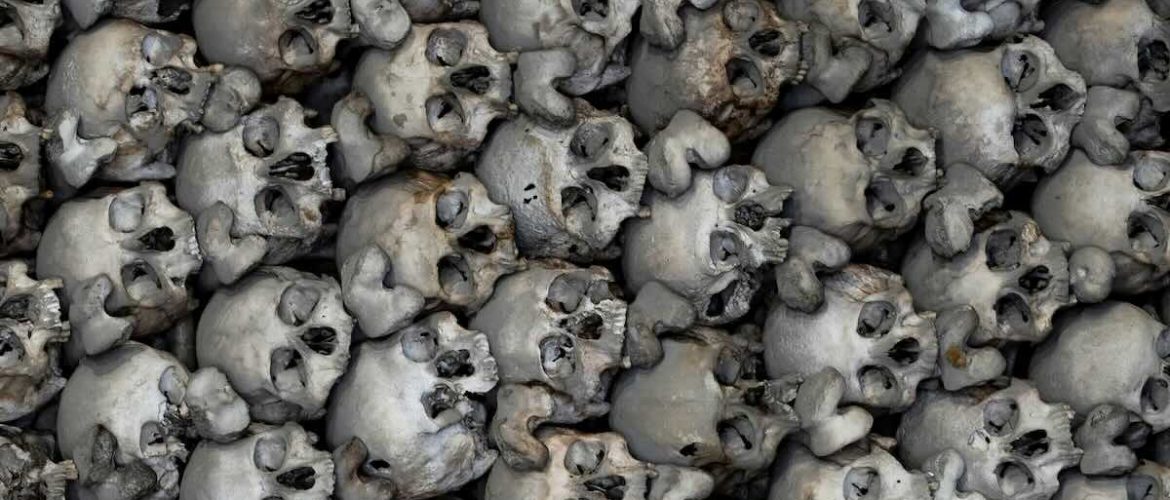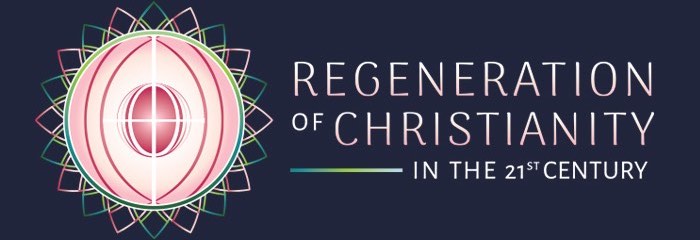Ezekiel 37 – From the valley of dry bones to the Kingdom of Heaven
- May 1, 2022
- Posted by: Michael Hallett
- Category: Cornerstones

The Old Testament is an incredibly accurate emotional account of its time. In it, I see the eternal brilliance of God shining through very temporal commands. Paul understood their transient nature: “[The Law] was only supposed to last until the coming of that descendant who was given the promise.” (Galatians 3:19)
Then came Jesus: “The kingdom of heaven will soon be here.” (Matthew 4:17)
2,000 years later, we still live in a patriarchy. Society is stratified from richest to poorest. The most vulnerable are the most victimized. We put a brave face on the shame and fear that who we are on the inside isn’t enough. So much has changed; yet, so little. Environmental stress only increases the pressure to victimize.
This is why Christianity needs regeneration.
Dry bones
In chapter 37 of Ezekiel, the prophet was shown a valley full of bones. “The Lord said, ‘Ezekiel, the people of Israel are like dead bones. They complain that they are dried up and that they have no hope for the future.’”
We are those dry bones.
We are stumbling through the emotional ruins of the past. We struggle to love the parts of ourselves patriarchy shames.
We are stumbling through the emotional ruins of the past. We struggle to love the parts of ourselves patriarchy shames. We’re ashamed of our emotions and our bodies, afraid of saying what we truly feel. We suffer from anxiety, depression, panic attacks, porn addiction and other disempowering issues.
These are cries for help.
When we judge parts of ourselves, they become repressed and then emerge in distorted and damaging ways. We all carry such damage, Christian or not, circumcised or not. Somewhere in the global spread of patriarchy it infected all our ancestors.
The narrow gate
Unconscious shame from our past hinders us from fully embracing Jesus’ creed of non-judgment, forgiveness and unconditional love. We unconsciously judge when Jesus asks us to consciously not judge.
Recognising and releasing unconscious shame and judgment requires painful soul-searching and forgiveness—for ourselves and others—that’s easier said than done: “You can see the speck in your friend’s eye, but you don’t notice the log in your own eye.” (Matthew 7:3)
This is why “The gate to destruction is wide, and the road that leads there is easy to follow. A lot of people go through that gate. But the gate to life is very narrow. The road that leads there is so hard to follow that only a few people find it.” (Matthew 7:13-14)
The theory is simple, the practice less so. I don’t claim to have mastered it, but Jesus lights the way with beautiful simplicity. To release our unconscious judgments we must go through the painful process of burning off the dross of falsehood.
Flaming furnace
My favourite story from the Old Testament is Nebuchadnezzar’s gold statue in Daniel, chapter 3. The king built a huge statue and ordered everyone to worship it. He was furious when he learned that three Jews, Shadrach, Meshach and Abednego, had refused.
Nebuchadnezzar roared that unless the three bowed to the statue they would be thrown into a flaming furnace. They refused and were thrown into the fire. The king stared into the furnace and saw a fourth figure that “looks like a god.”
“You servants of the Most High God,” Nebuchadnezzar ordered, “come out at once!” Shadrach, Meshach and Abednego emerged unscathed. They had been completely uncompromising—and God responded to that.
On one level, God’s request to Abraham to sacrifice his son is a patriarchal obedience test. But on another, it shows that if we follow God’s will without compromise, without trying to control the outcome, we will be rewarded.
God blinks neither at the darkness nor the light. Neither must we.
God blinks neither at the darkness nor the light. Neither must we.
Unlovable
We must be willing to stare into the darkness of our own being and see what’s truly there. When we do, we reach a place at our core where we feel unlovable.
It’s where desertification and its traumas damaged our mother-child bond and separated us from both God and nature.
Can you feel the trauma? Read any of the Old Testament’s anti-feminine edicts. Then let go of your thoughts and feel into the text, between and behind the lines, down through the centuries, to the trauma. It’s very faint, very deep—but it’s in there: a sense of shock like an unpleasant buzz, so remote it’s hard to notice.
Come alive
The path that Jesus points to heals these traumas. The journey to wholeness is the journey to God. The Promised Land we seek today is a place of wellbeing, joy and cohesion—the strength to stand like lighthouses as life’s storms break over us. The milk and honey we crave is not literal but emotional.
But we must do the work. God signals this in Ezekiel 37:12. He doesn’t animate the dry bones; Ezekiel must do it: “So tell them, ‘I, the Lord God, promise to open your graves and set you free.’”
To be free we must follow Jesus above all.
To be free we must follow Jesus above all: “Love the Lord your God with all your heart, soul and mind.” (Matthew 22:37) In this lies the fulfilment of the Law and the prophets, the completion of the journey from the Old Testament to the New, the unconditional integration of feminine and masculine into the oneness of God.
Jean-Yves Leloup writes: “What is at stake here is total salvation, the liberation of a human being in his or her entirety through the imbuing of all dimensions of this being with consciousness and love.”
It’s time to stop the damaging cycles of victimizer and victim. It’s time to release negative perceptions of our God-given emotions and bodies. It’s time for a sacred sexuality that we’re unashamed to lay before God. Sexual energy is the energy of life. How can we come alive if we shame the God-given energy that creates and animates life?
It’s time to reconnect with the fullness of our being, whoever we are: “I came so that everyone would have life, and have it in its fullest.” (John 10:10)
Go on, have life in its fullest—give yourself permission. In this time of climate change and environmental stress we can do more than survive—we can thrive.
It’s time, in the words of one of my favourite worship songs, to Come Alive:
Oh breathe, oh breath of God, oh breathe…
Background: Deuteronomy 6 – how ancient taboos created modern social rules
Photo by Malcolm Lightbody on Unsplash
